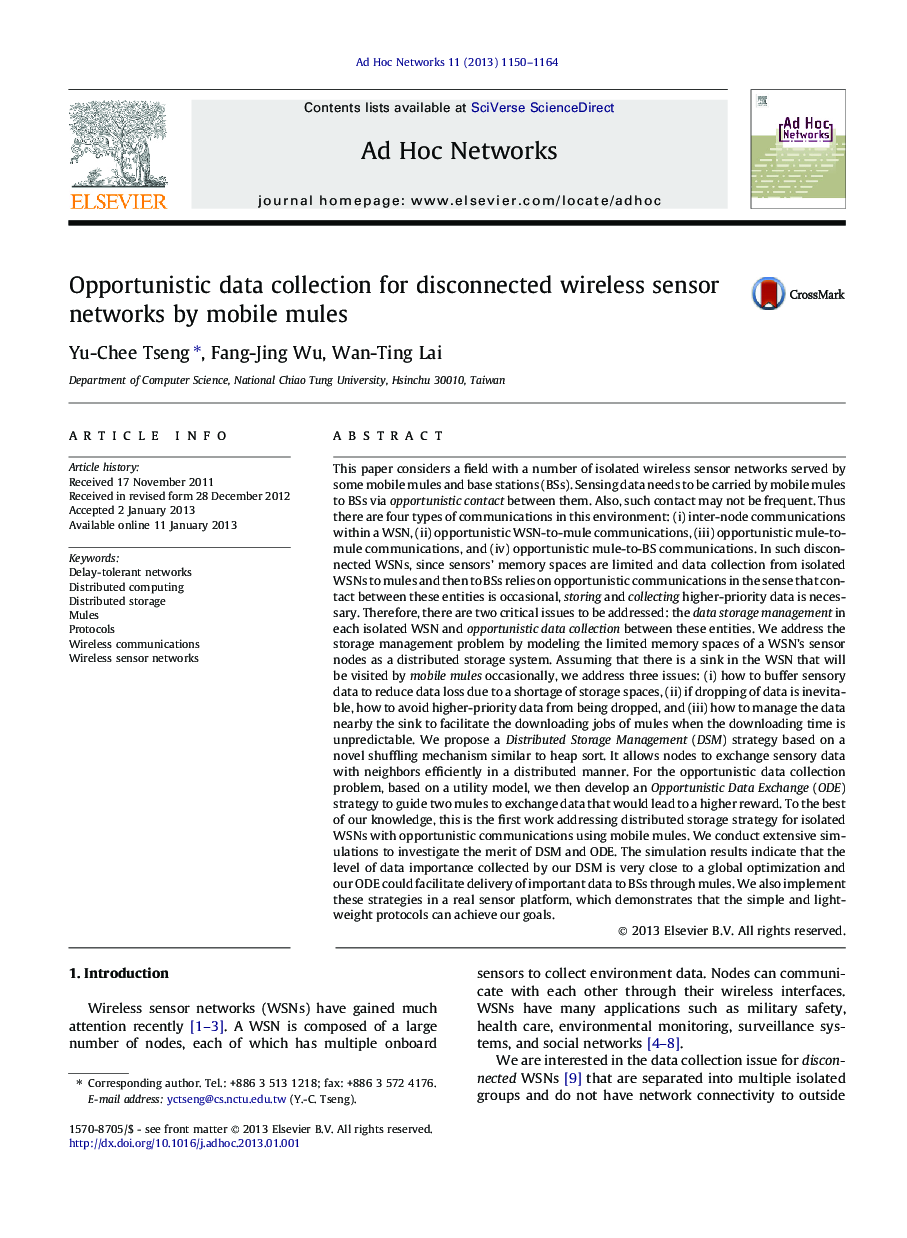| Article ID | Journal | Published Year | Pages | File Type |
|---|---|---|---|---|
| 10338057 | Ad Hoc Networks | 2013 | 15 Pages |
Abstract
This paper considers a field with a number of isolated wireless sensor networks served by some mobile mules and base stations (BSs). Sensing data needs to be carried by mobile mules to BSs via opportunistic contact between them. Also, such contact may not be frequent. Thus there are four types of communications in this environment: (i) inter-node communications within a WSN, (ii) opportunistic WSN-to-mule communications, (iii) opportunistic mule-to-mule communications, and (iv) opportunistic mule-to-BS communications. In such disconnected WSNs, since sensors' memory spaces are limited and data collection from isolated WSNs to mules and then to BSs relies on opportunistic communications in the sense that contact between these entities is occasional, storing and collecting higher-priority data is necessary. Therefore, there are two critical issues to be addressed: the data storage management in each isolated WSN and opportunistic data collection between these entities. We address the storage management problem by modeling the limited memory spaces of a WSN's sensor nodes as a distributed storage system. Assuming that there is a sink in the WSN that will be visited by mobile mules occasionally, we address three issues: (i) how to buffer sensory data to reduce data loss due to a shortage of storage spaces, (ii) if dropping of data is inevitable, how to avoid higher-priority data from being dropped, and (iii) how to manage the data nearby the sink to facilitate the downloading jobs of mules when the downloading time is unpredictable. We propose a Distributed Storage Management (DSM) strategy based on a novel shuffling mechanism similar to heap sort. It allows nodes to exchange sensory data with neighbors efficiently in a distributed manner. For the opportunistic data collection problem, based on a utility model, we then develop an Opportunistic Data Exchange (ODE) strategy to guide two mules to exchange data that would lead to a higher reward. To the best of our knowledge, this is the first work addressing distributed storage strategy for isolated WSNs with opportunistic communications using mobile mules. We conduct extensive simulations to investigate the merit of DSM and ODE. The simulation results indicate that the level of data importance collected by our DSM is very close to a global optimization and our ODE could facilitate delivery of important data to BSs through mules. We also implement these strategies in a real sensor platform, which demonstrates that the simple and lightweight protocols can achieve our goals.
Keywords
Related Topics
Physical Sciences and Engineering
Computer Science
Computer Networks and Communications
Authors
Yu-Chee Tseng, Fang-Jing Wu, Wan-Ting Lai,
